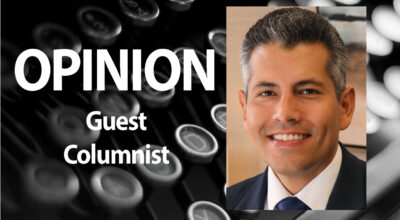If we could only decide what is fair
Published 7:15 am Saturday, December 3, 2016
Editorial by Bobby Tingle
The Fairness Doctrine was a Federal Communication Commission rule in place for several years designed to ensure broadcasters were fair.
The FCC is a regulatory agency of the federal government, according to their website. They regulate interstate communication and claim to be an independent arbiter. They are the self-proclaimed authority for communications law, regulation and technological innovation.
However, they also claim to be regulated by Congress.
Does that raise a red flag of suspicion? Congress is anything but independent. How can a biased body oversee the actions of a regulatory agency fairly? Congress was created by the document, the Constitution of the United States, which also guarantees free speech.
How can a body of elected officials, established in a manner that strips them of the power to limit speech, establish a regulatory body capable of limiting speech?
The history of the Fairness Doctrine is interesting. I became aware of it in the early 90’s. I do not recall the specific situation that brought it to light. The FCC stopped enforcing the doctrine in 1987. Court cases eroded the legal foundation of the rule over the years and the commission finally relented.
It never was constitutional.
Biased bodies of elected officials, such as the United States Congress, cannot determine what is fair. What is fair to them individually is what is best for them. What is fair to them collectively is defined by a ruling percentage of the group. As the makeup of the ruling percentage changes, then so does the definition of fair.
There is never a settled definition of fair.
During the 90’s, I often listened to a radio station affiliated with the American Family Association. Don Wildmon founded AFA and it was during this period that he came up with the idea to expand his reach with radio. American Family Radio was created and began broadcasting from Tupelo, Mississippi. Wildmon had big plans for AFR and discovered a way to broadcast over a large geographic area from his station in Tupelo. He began establishing radio repeater stations all over the United States. Each station would receive the weak or low-level signal and retransmit it at a higher or more powerful level. Wildmon expanded the reach of AFR by building repeater stations in population centers across our nation.
The FCC had other plans. As AFR spread, the FCC began to limit their growth through their regulatory power. I never fully comprehended their concern nor the resolution.
The Fairness Doctrine failed because it allowed the FCC to regulate communication based on its bias. Bias is usually considered to be unfair. But bias cannot be avoided.
Name any human invention and then apply your standard of fairness.
Consider the Electoral College. It is the mechanism designed by the founders of our nation by which we choose the President of the United States. In my lifetime, I believe I have witnessed arguments about its fairness about ten times. It happens once every four years when we choose a president.
What about taxes? Is the tax table fair? That depends on your definition of fair. The way it is designed you can earn up to the standard deduction for your filing status before you even owe federal income tax. If you qualify, you can take a fair number of other deductions, exemptions and credits based on your status during the tax year. Each one you qualify for just gives you more tax free income.
In the coming months, we will see the definition of fair change. It is inevitable as newly elected officials take office.
But don’t worry. The pendulum will swing back. It always has.
Bobby Tingle is publisher of The Orange Leader. You can reach him at bobby.tingle@orangeleader.com.





